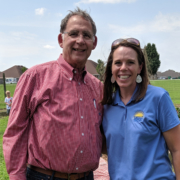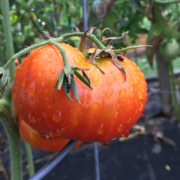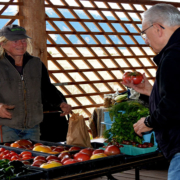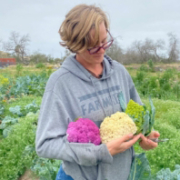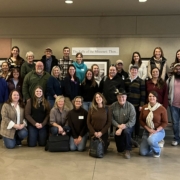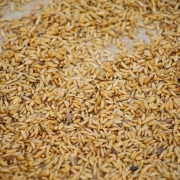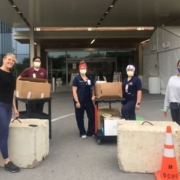A Senator’s View of a Post-COVID Food World
 Print This Post
Print This Post
By Steve Thompson, NCAT Executive Director
While in Washington, DC, last spring, just as the rising tide of COVID-19 began, I had the pleasure of visiting with Senator John Boozman of Arkansas during a chance encounter outside the Capitol. A warm and friendly man by temperament, his dedication to sustainable agriculture and local food systems quickly animated our curbside conversation.
Fast forward to 2021: With the retirement of Kansas Senator Pat Roberts, I am delighted that Sen. Boozman has been named Ranking Member of the Senate Agriculture Committee, where he will continue his important work on agricultural issues that we face as a nation.
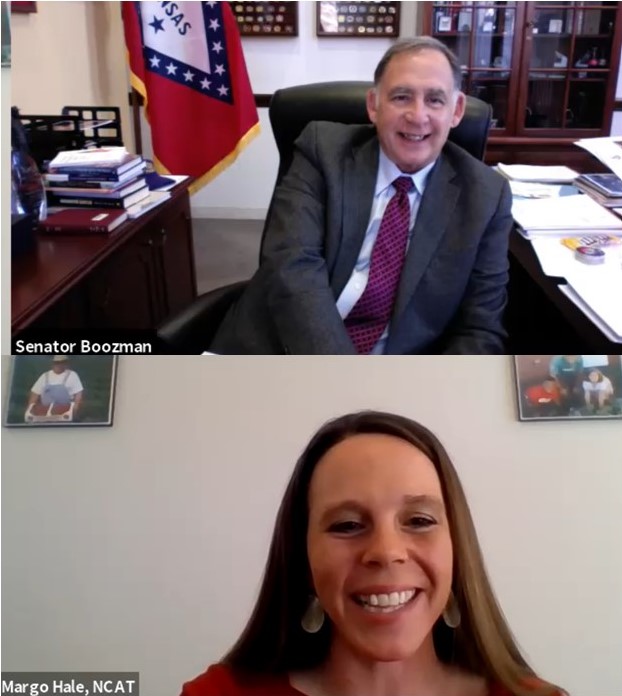
Arkansas Senator John Boozman spoke with NCAT Southeast Regional Director Margo Hale via Zoom in December 2020.
I thought back to our conversation after hearing his thoughts in our latest ATTRA podcast about American agriculture in a post-COVID world. In December, Sen. Boozman sat down with Margo Hale, Southeast Regional Director of the National Center for Appropriate Technology, located in Fayetteville, Arkansas, to share his thoughts on the future of American food systems and agriculture. The pandemic exposed some significant weaknesses in America’s food system, he says, but it also has revealed some hopeful opportunities to strengthen the resilience of our supply chains, provide healthy fresh food to communities, and add economic value to farmers and ranchers who have struggled through trade wars and low commodity prices.
For background, John Boozman grew up in northwestern Arkansas and raised beef cattle before joining Congress 20 years ago. Margo has known Sen. Boozman since she was a little girl, when he was an optometrist living in Rogers, Arkansas. She was in a church youth group and 4-H with his daughters where they attended camps, competitions, and livestock fairs together. Since 2003, Margo has worked in NCAT’s Fayetteville office, providing technical assistance to farmers through the ATTRA Sustainable Agriculture Program, which NCAT manages under a cooperative agreement with USDA-Rural Development. She has remained in close touch with Sen. Boozman throughout her career, often joining him on farm or school visits and welcoming his staff to attend beginning farmer workshops that she developed for military veterans.
Their easy and far-ranging conversation reflects their years of friendship, as well as Sen. Boozman’s strong support for NCAT’s decades of work with farmers to increase profitability, reduce input costs, and protect environmental resources.
Listen to the ATTRA podcast interview with Sen. Boozman or watch the video version.
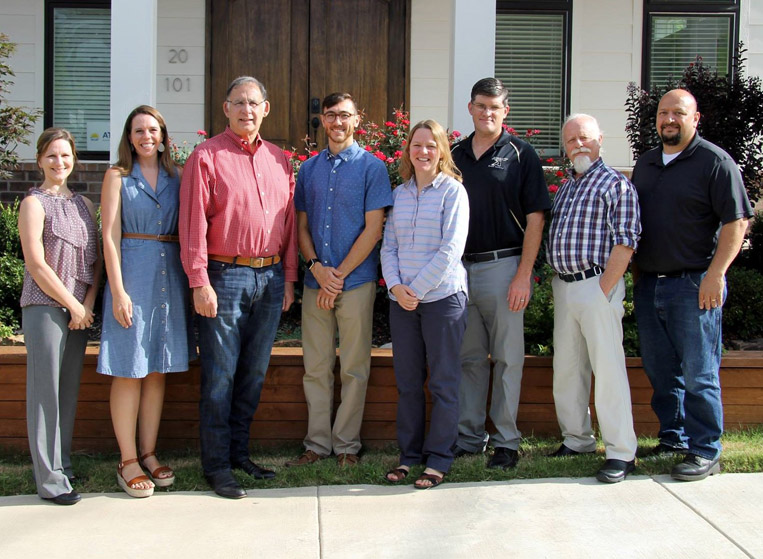
Senator Boozman visited NCAT’s Southeast office in August 2018 to meet with staff and speak with two alumni of NCAT’s Armed to Farm program for military veterans.
Here are some key takeaways from their conversation:
- COVID-19 revealed several weaknesses in our food system, including a supply chain that “that didn’t break but it buckled.” Yet the pandemic also presented opportunities for farmers to meet the growing demand for fresh, locally grown food. Congress will be looking back at these lessons to identify ways to help farmers meet these opportunities and address the challenges.
- Small farms have many advantages, including lower start-up costs; strong marketing opportunities through local retailers, farm to school, and local restaurants; and food-production systems that are better for the environment with a lower carbon footprint.
- Congress will be working with the states to boost small- and mid-scale meat processing, which will help shorten the supply chain, improve competition, and meet consumer demand for local meat.
- It is important for our farms to be financially viable, and they discussed factors that influence profitability including business planning, educational programs, access to technology, decreasing input costs, access to markets, and government programs.
NCAT thanks Sen. Boozman for his continued support for America’s small and mid-sized farmers and the eaters they serve. We appreciate his long-time support for the ATTRA and Armed to Farm programs, and we congratulate Sen. Boozman in his new role as Ranking Member of the Senate Agriculture Committee.

